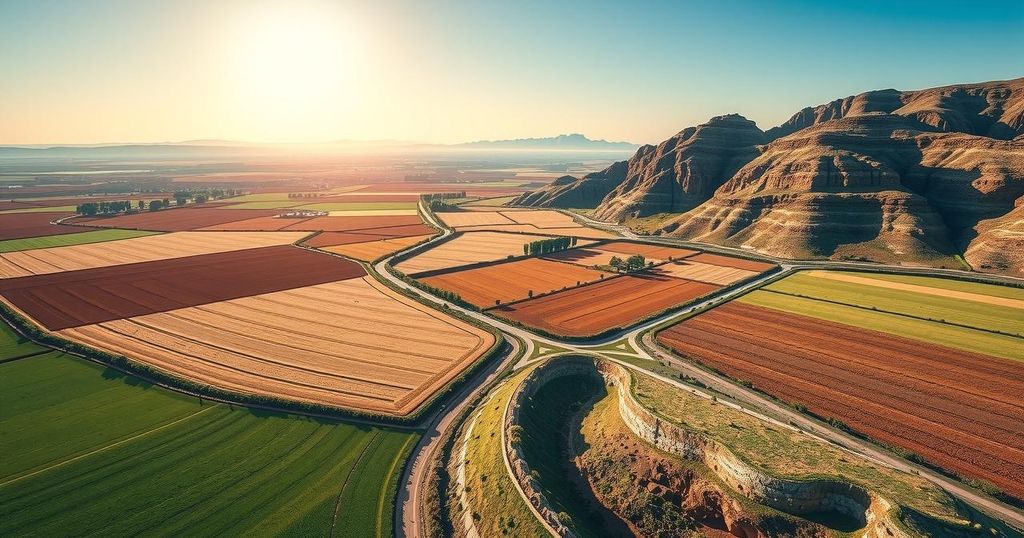President Cyril Ramaphosa of South Africa addressed U.S. President Donald Trump’s claims regarding land confiscation, emphasizing the legal nature of the country’s land reform policies. Ramaphosa stated that no land has been confiscated and expressed readiness for dialogue with the Trump administration. The backdrop to this discussion is rooted in South Africa’s complex history of land ownership following apartheid.
On Monday, South African President Cyril Ramaphosa responded to U.S. President Donald Trump’s assertion regarding land confiscation, stating that the South African government has not engaged in such practices. Ramaphosa emphasized that the nation operates as a constitutional democracy governed by law, justice, and equality. He expressed the country’s willingness to discuss its land reform policies with the Trump administration, recognizing the U.S. as an essential partner, albeit one that does not contribute significantly beyond a major HIV/AIDS relief initiative.
Trump had previously threatened to withdraw future aid to South Africa unless a thorough investigation was conducted into claims that land confiscation was occurring alongside the mistreatment of White farmers. His comments echoed previous grievances from 2018 regarding South Africa’s complex land reform situation. The historical context involves discriminatory practices that dispossessed Black and non-White citizens of land for White agricultural use following the apartheid era.
The land reform debate in South Africa is rooted in the historical injustices of apartheid, which forcibly removed Black inhabitants from their lands. Since the end of apartheid in 1994, the South African Constitution has included provisions for land restitution and redistribution. Although the government has enacted policies aimed at rectifying these injustices, a significant disparity persists, with approximately 80% of the population being Black, yet owning a minimal portion of land. In January, legislation enabling expropriation without compensation was signed into law, igniting further controversy and potential legal challenges.
In summary, President Cyril Ramaphosa refuted claims of land confiscation by the U.S. President, emphasizing South Africa’s commitment to lawful and equitable land reform. The ongoing challenges of land ownership inequality and the political implications of South Africa’s land policies remain critical discussions points, especially in light of international scrutiny. Such developments underscore the intricate relationship between historical injustices and contemporary governance in South Africa.
Original Source: www.cnn.com






